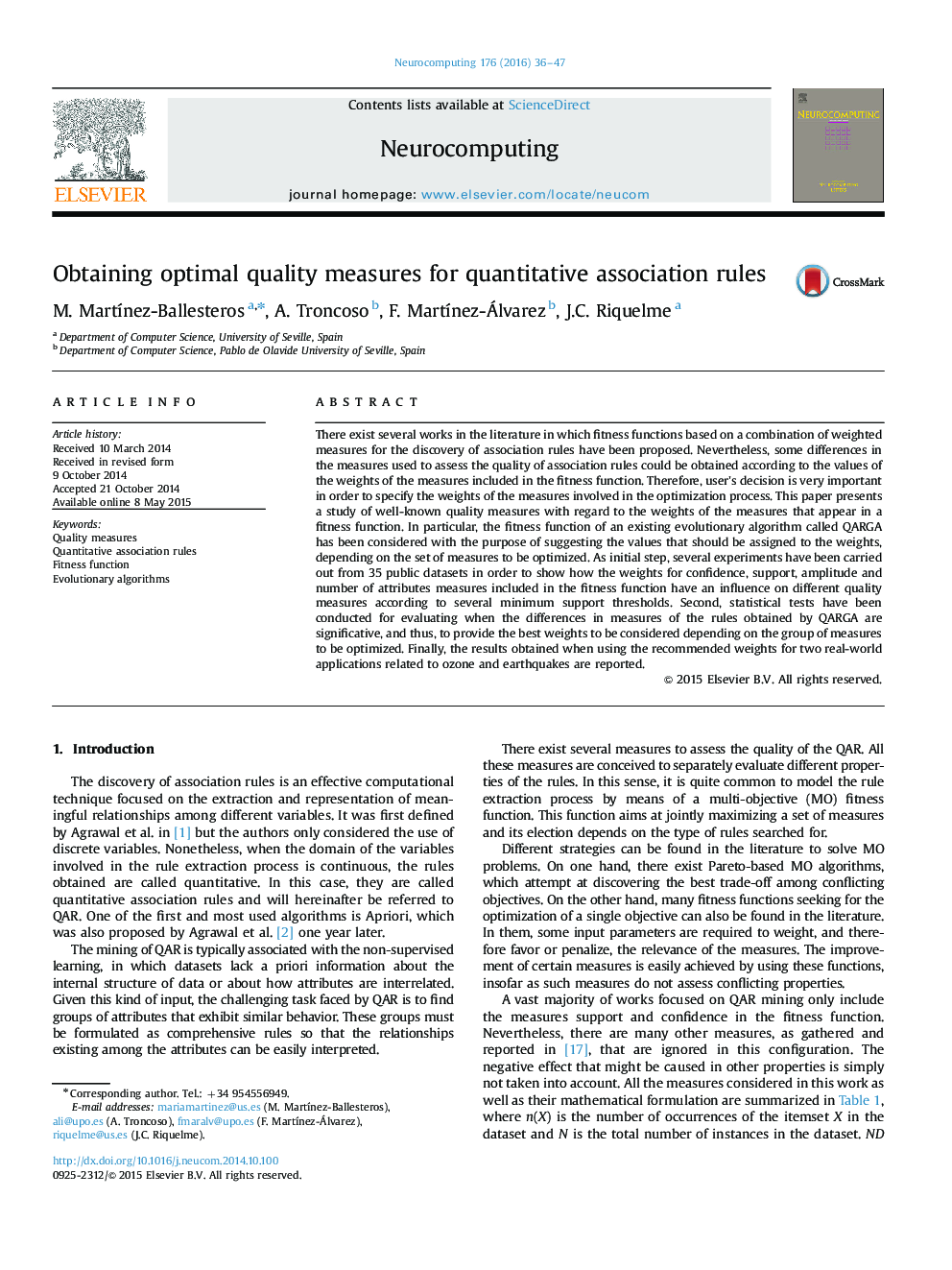| کد مقاله | کد نشریه | سال انتشار | مقاله انگلیسی | نسخه تمام متن |
|---|---|---|---|---|
| 406081 | 678059 | 2016 | 12 صفحه PDF | دانلود رایگان |
There exist several works in the literature in which fitness functions based on a combination of weighted measures for the discovery of association rules have been proposed. Nevertheless, some differences in the measures used to assess the quality of association rules could be obtained according to the values of the weights of the measures included in the fitness function. Therefore, user׳s decision is very important in order to specify the weights of the measures involved in the optimization process. This paper presents a study of well-known quality measures with regard to the weights of the measures that appear in a fitness function. In particular, the fitness function of an existing evolutionary algorithm called QARGA has been considered with the purpose of suggesting the values that should be assigned to the weights, depending on the set of measures to be optimized. As initial step, several experiments have been carried out from 35 public datasets in order to show how the weights for confidence, support, amplitude and number of attributes measures included in the fitness function have an influence on different quality measures according to several minimum support thresholds. Second, statistical tests have been conducted for evaluating when the differences in measures of the rules obtained by QARGA are significative, and thus, to provide the best weights to be considered depending on the group of measures to be optimized. Finally, the results obtained when using the recommended weights for two real-world applications related to ozone and earthquakes are reported.
Journal: Neurocomputing - Volume 176, 2 February 2016, Pages 36–47
